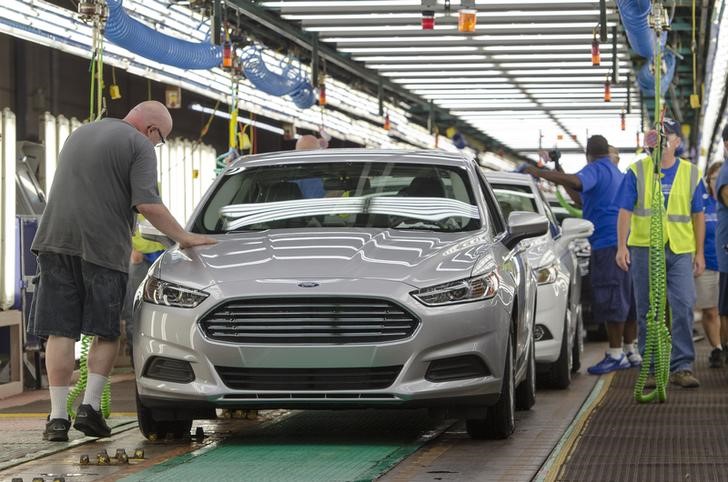Street Calls of the Week
Investing.com -- US President Donald Trump’s actions upon his return to the White House have brought “expected uncertainty” for the auto industry, Bank of America (NYSE:BAC) analysts said in Wednesday note.
On his first day back in office, President Trump issued an Executive Order (EO) aimed at dismantling policies that favor electric vehicles (EVs) and made comments about imposing potential tariffs on imports from Canada and Mexico.
“The exact actions to affect these changes have not yet been taken, but Trump’s EO and comments are largely as expected,” analysts led by John Murphy commented.
“We expect that the removal of the “EV mandate” will be executed, but tariffs that could be detrimental to the US auto industry are less likely to come to fruition,” they added.
The EO signed by President Trump, referred to as "Unleashing American Energy" (UAE), seeks to promote consumer choice over vehicle types, end state emissions waivers, reconsider EV subsidies, stop funding for EV charging stations, and potentially relax EPA regulations.
This move is expected to initially boost EV sales in the short term but may result in sales settling at or below the levels seen in 2024, according to BofA.
Moreover, President Trump has proposed a 25% tariff on imports from Canada and Mexico, which could be implemented as early as February 1st.
The intention behind these tariffs is to address illegal drug trafficking and immigration, but they also pose a significant risk to the US auto industry if enacted.
The President has also instructed the secretaries of Commerce and Treasury to investigate the causes of US trade deficits for potential additional tariffs.
“Without specific policy, the tariff risk looms large for the auto industry,” analysts cautioned.
BofA notes that the production operations of Ford (NYSE:F) and General Motors (NYSE:GM) in Canada and Mexico are particularly at risk, as they produce 15-20% and 30-35% of their total vehicles there, respectively.
The imposition of a 25% tariff could have a severe negative impact on their earnings, potentially rendering their production in these countries largely unprofitable, unless they can offset the tariffs with price increases.
“Tariffs of 25% would have material consequences for the entire group and translate into steep price increases for their customers,” BofA concluded.
